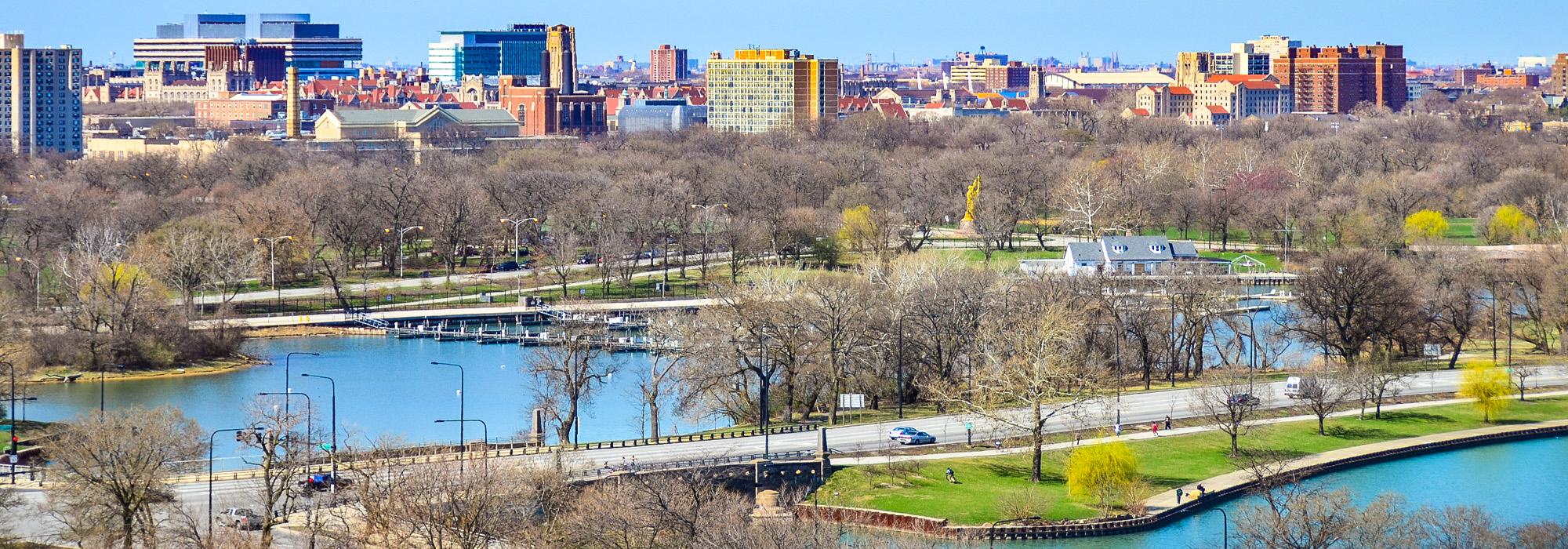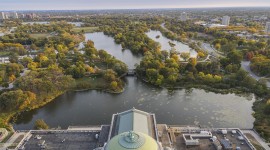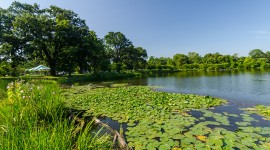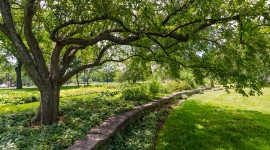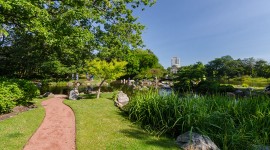Despite Ongoing Litigation, the OPC Breaks Ground
On August 16, 2021, the first steps to an official ground breaking for the Obama Presidential Center (OPC) took place despite ongoing litigation by the local advocacy organization Protect our Parks (POP) and others, which is challenging the siting of the OPC on some 20 acres in historic Jackson Park on Chicago’s South Side. As part of its suit filed on April 14, 2021, POP sought to prevent the groundbreaking until the suit was resolved. On Thursday, August 5, 2021, U.S. District Court Judge John Robert Blakey refused to issue an injunction to prohibit construction but he did allow the suit concerning the siting to proceed.
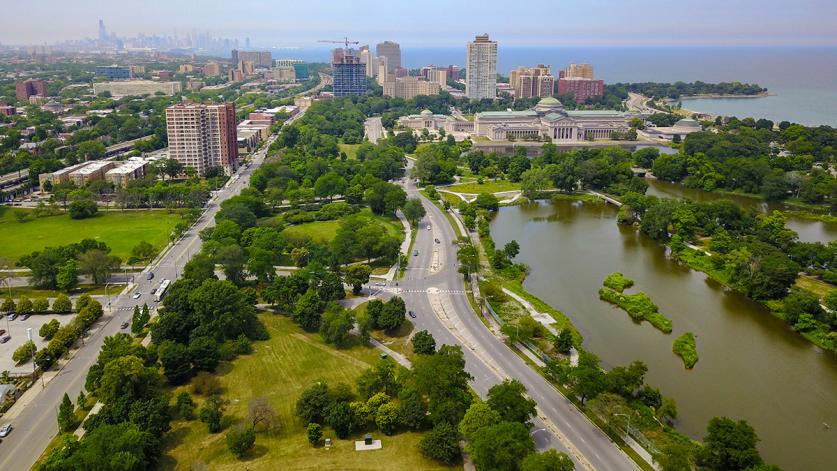
The suit, against the City of Chicago, three federal agencies and the Obama Foundation, contends that the federal level reviews neglected to consider methods to avoid negative impacts to Jackson Park, specifically by locating OPC outside of Jackson Park. Because Jackson Park is listed in the National Register of Historic Places, a review pursuant to Section 106 of the National Historic Preservation Act was required. The goal of the Section 106 review was to identify “adverse effects” (federal parlance for negative impacts) that construction of the OPC would have on Jackson Park and develop methods to avoid, minimize and mitigate those adverse effects.
The federal Section 106 process was managed by the City of Chicago Department of Planning and Development for the Federal Highway Administration (FHWA). Official consulting parties to the Section 106 review, including The Cultural Landscape Foundation (TCLF), were surprised when FHWA concluded in a January 2020 report that “The Federal agencies do not have sufficient control to condition project approval for the construction of the OPC,” and that they could not require the OPC to be moved out of Jackson Park, which would avoid the adverse effect. The FHWA wrote that the option to move the OPC out of Jackson Park had been considered repeatedly at the local level and that “In considering the proposal, the City had two practical alternatives: (1) deny the Foundation’s proposal and lose the opportunity to host the OPC, or (2) approve the Foundation’s proposal subject to development limits and obligations to preserve park uses and public access.” The risk of losing “the opportunity to host the OPC” was, in fact, a myth and a scare tactic. There was never any doubt of siting the OPC in Chicago. “I became president because of the South Side of Chicago,” former president Obama said in a February 27, 2018, townhall style meeting, “So, we were going to have the presidential center on the South Side of Chicago.”
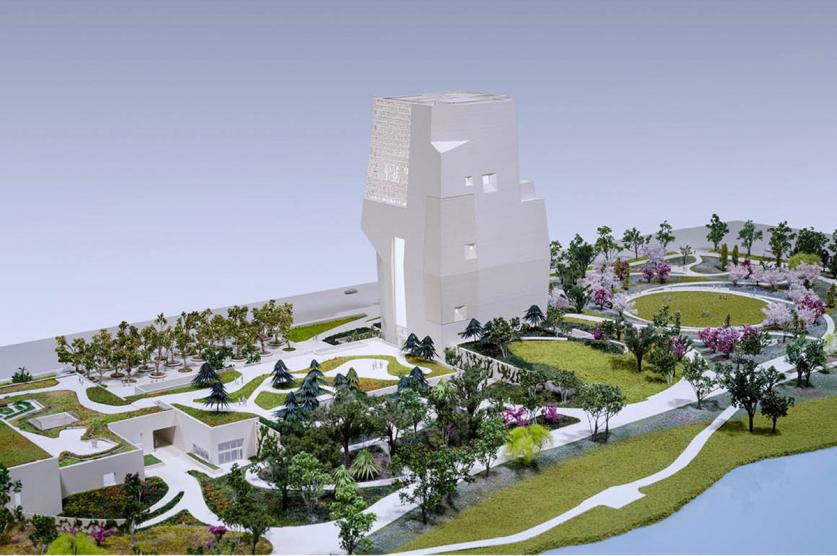
According to an executive summary of the suit on POP’s website:
The complaint focuses on two fundamental flaws that permeate all of the federal reviews. First, in each of these reviews, the agencies artificially segment the project, splitting one unified project into smaller pieces. One piece is the destruction of Jackson Park, and the second is the construction of a new road system after the construction of the OPC. By manufacturing this division, the federal agencies argue that the OPC construction segment is a "local" matter. They claim they have no control over such matters while simultaneously asserting control over the project's remaining elements. In so doing, the federal agencies and the other defendants approve and embrace the clear-cutting of 1000 mature, carbon-sequestering trees, permanent disruption of annual bird migratory flights, and the closing of four main automobile thoroughfares in Chicago's South Side. Such a result, founded upon the division of a unitary undertaking, is contrary to the law and the policies underlying the federal regulatory framework triggered by the OPC’s proposed construction in Jackson Park.
Second, by engaging in that prohibited practice, the federal agencies nullify their statutory requirement to search for alternatives to avoid or minimize these significant adverse impacts to environmental, historical, and cultural resources. In so doing, federal agencies and other defendants ignored the applicable statutory mandates and therefore failed concerned citizens and the public interest.
Finally, the lawsuit raises the city’s breach of its public trust obligations. The City gives a private entity, the Obama Foundation, nearly 20 prime acres of publicly owned green space in the heart of historic Jackson Park for 99-years, tax-free, for $10.00. As part of the transaction, the City delegated all material decision-making authority to the Obama Foundation without conducting adequate due diligence. Ultimately, rubber-stamping this one-sided transaction, consistent with its improper delegation of authority.
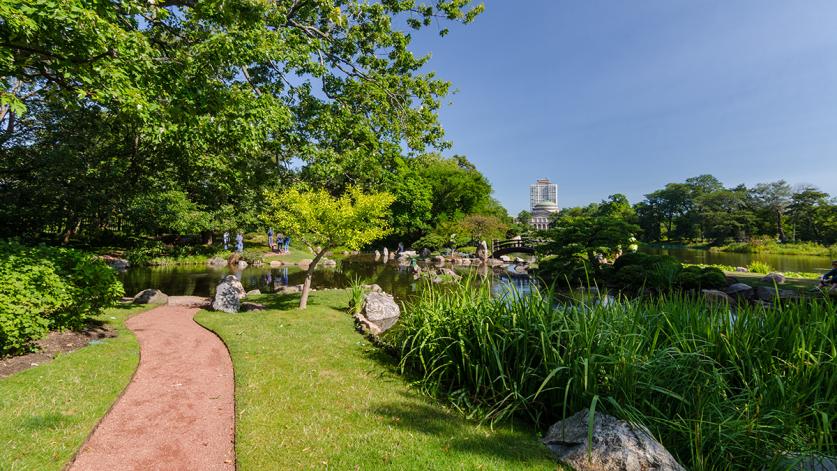
An August 9, 2021, Chicago Tribune editorial stated: “Certainly, there are avenues of appeal open to Protect Our Parks and other interested parties. They have the right to pursue them and they have said that they will.” However, the editorial continued: “The appeals should not be pursued once the ground is broken.” A successful appeal, the editorial board argued, would be an embarrassment to the city, the former president and OPC proponents. The question that the Obama Foundation and other OPC proponents have never addressed is why must parkland held in public trust be confiscated for this facility?
When Judge Blakely will rule on the suit is not known; however, the start of the process that would lead to the destruction of some 20 acres of Jackson Park has commenced.



